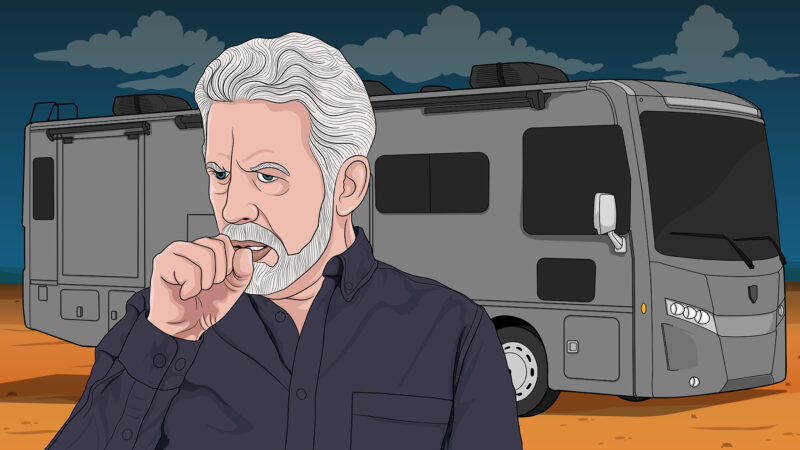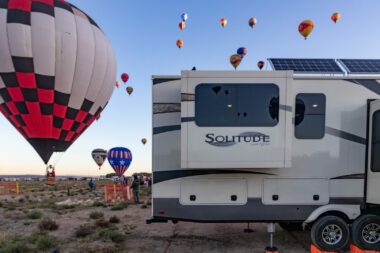Table of Contents Show
You may get excited to get a new RV, but it may scare you that it could also make you sick. We don’t want your RV to cause you a headache, literally and figuratively.
Before you set off on your first big trip, we want to share with you five ways your RV can make you sick. Let’s get started.
Is Your RV Making You Sick?
You want to rest and relax in your RV. However, some things can cause you to feel under the weather. If you notice that you feel ill every time you use your RV, you should immediately address it.
These situations typically don’t fix themselves and tend to get worse and more expensive if left unresolved. Don’t delay addressing the problem.

Things in an RV That Can Make Humans and Pets Sick
If you feel sick while in your RV, here are the first five things you should check. Let’s take a look.
1. Building Material Off-Gassing
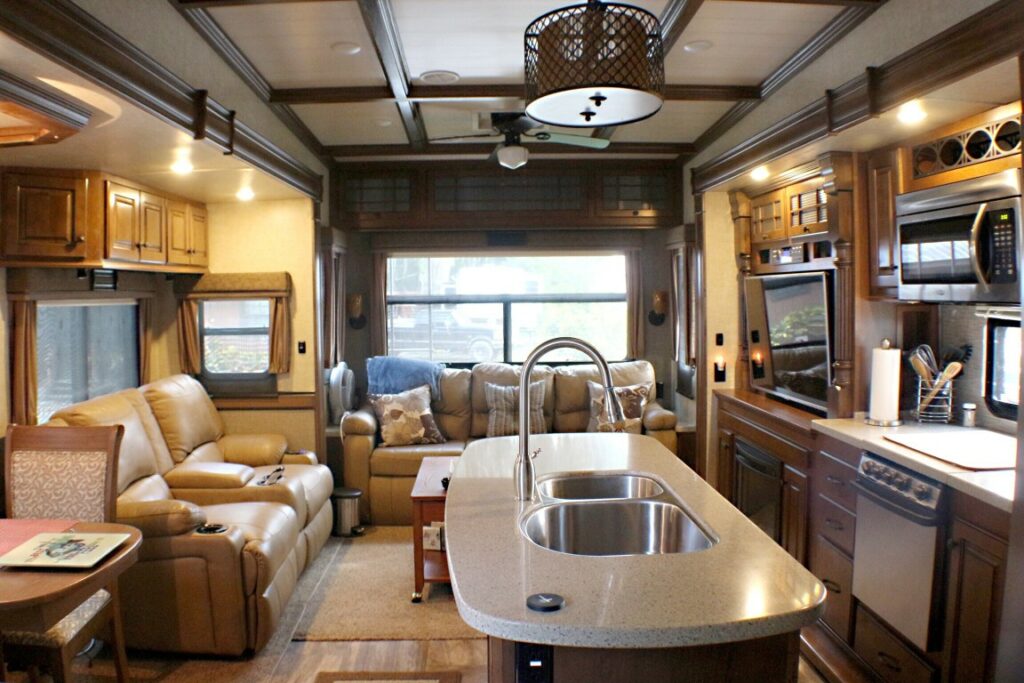
Did you know that some manufacturers use formaldehyde materials during construction? Yes, the same formaldehyde used in the embalming process is also glue in building materials.
You will likely notice the unique smell when in hot, humid weather. If you find yourself getting headaches, nosebleeds, or experience asthma or other respiratory problems, it’s likely due to the off-gassing of formaldehyde.
Despite rising prices in the RV industry, some manufacturers use lower-quality materials. You may notice the off-gassing smell on your RV for months to a year or longer.
2. Mold and Mildew
Mold and mildew may also cause illness, and it can grow a couple of ways. Both of these appear as a result of moisture build-up. Whether the moisture is from high humidity or a leak, it can create a serious situation. This is why it’s important to keep your RV’s humidity level low and maintain your exterior seals.
Mold from high humidity will show up on wood and other materials that have little air movement. RVers commonly discover mold and mildew under mattresses. Using a dehumidifier and other moisture-controlling products like Damp Rid can help minimize this risk.
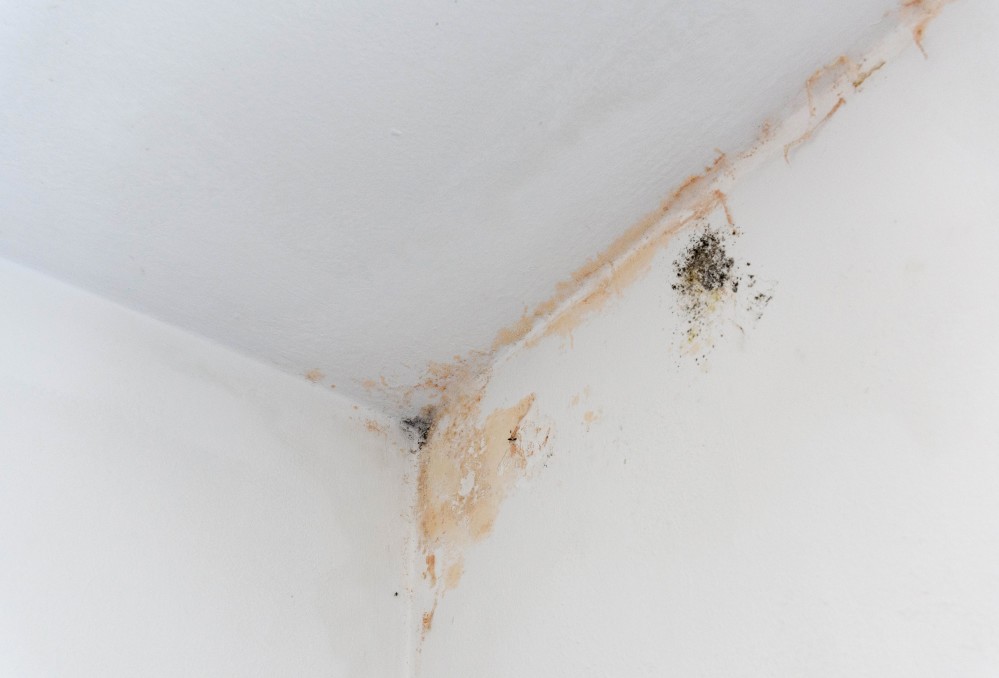
If you find yourself having a stuffy nose, wheezing, and red or itchy eyes, you may have a mold problem. Some people even report developing a cough or sore throat, but symptoms vary from person to person. If you notice a recurring issue, it’s worth searching for any sign of mold.
3. Dirty Fresh Water System
Even if you use clean water, you can still get sick from your freshwater system. When water sits in your RV’s holding tanks and water lines, it can develop legionellosis. These tiny bacteria can form a pneumonia-type or a flu-like illness called Pontiac fever.
You can get either of these illnesses by breathing or consuming even the smallest water droplets containing the bacteria. To avoid this, you should make sure to sanitize your fresh water system every three to six months, depending on how often you use your RV.
If you travel full-time in your RV, you should do it every three months, but weekend users can likely get by cleaning the system while de-winterizing at the start of each camping season.
4. Carbon Monoxide
Carbon monoxide (CO2) can be dangerous because it’s a silent killer. CO2 is an invisible, odorless, and highly toxic gas. New RVs come with a CO2 detector by law in many states.
You can encounter carbon monoxide from generator or vehicle exhaust, portable gas heaters, and even gas appliances. If your carbon monoxide detector goes off, respond immediately.
Some of the common symptoms of carbon monoxide poisoning include dizziness, vomiting, nausea, headaches, and trouble thinking clearly. If you begin to show any of these signs or your CO2 detector goes off, open all of your windows, doors, and turn off your exhaust fans.
You should vacate all pets and people from your RV and call 911 if symptoms worsen. If you cannot identify the cause for the alarm, contact a professional to inspect your RV. You should also test your CO2 detector every three to six months to ensure it works correctly.
5. Allergens in Your Air System
Your RV air conditioners have filters that need regular cleaning. The more you use your air conditioner, the more you’ll want to clean it. It helps the unit run more efficiently and reduces the risk of allergens in the air.
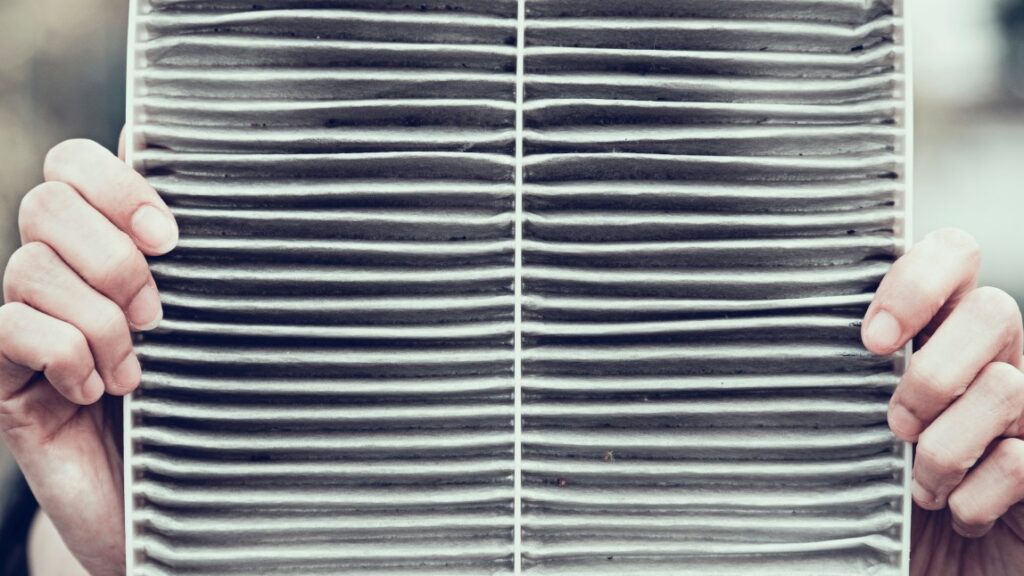
If you have allergies or asthma, you may start to notice allergens from your AC unit. Your eyes may water, your nose may run, or you may find it hard to breathe. If you have disposable air filters, keep a supply of them on hand. You may also have filters you can rinse with water and dry to return them to like-new condition.
Is It Toxic to Live in an RV?
Living in an RV can be toxic, but it doesn’t have to be. To avoid an unhealthy environment, stay up to date on maintenance. You want to avoid having dirty filters, leaks in your roof or seals, and make sure your CO2 detector and other safety components work.
Remember that if you use a portable generator or another exhaust-producing piece of machinery, face it away from your RV, and make sure the wind blows the exhaust away. If a neighbor uses a generator, make sure you’re not downwind from their exhaust as well.
If You Feel Sick, Check These Things First
Check these five things first if you repeatedly feel sick while in your RV. Determine whether the cause is off-gassing, mold and mildew, your water system, carbon monoxide, or allergens.
It may cost you a few bucks to hire a professional to inspect your RV, but the health of everyone in your RV is priceless. Has your RV ever made you sick?




